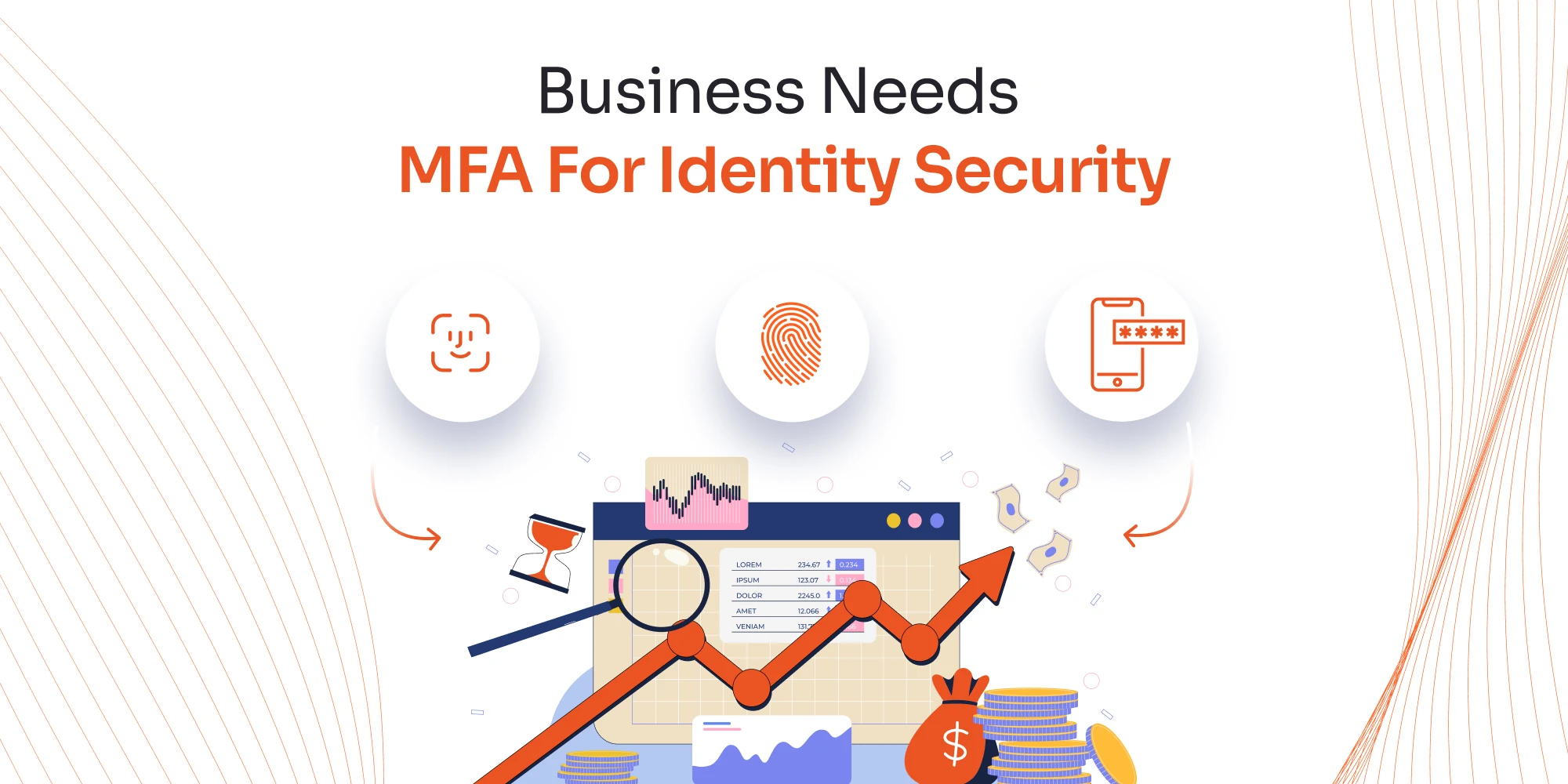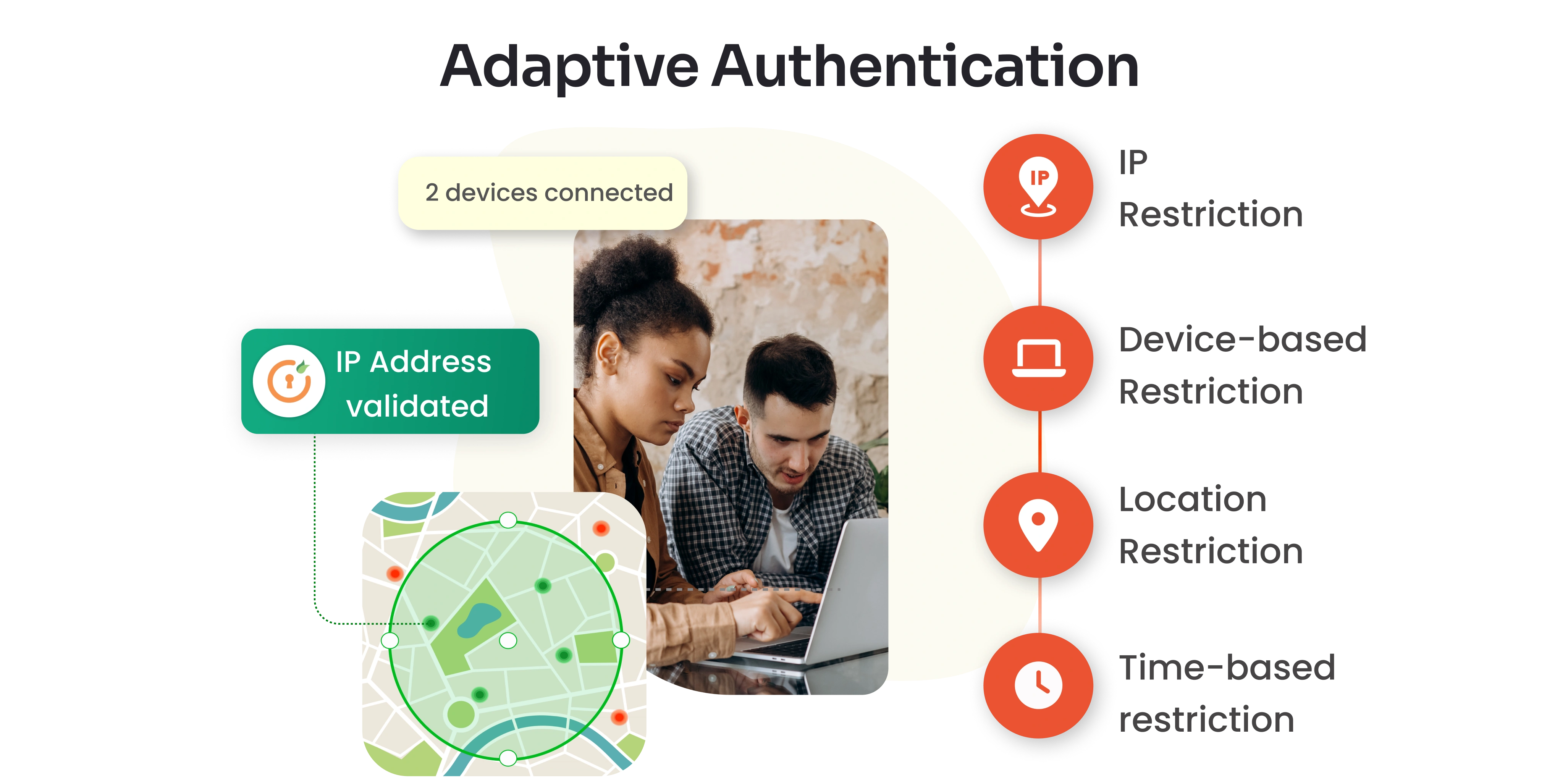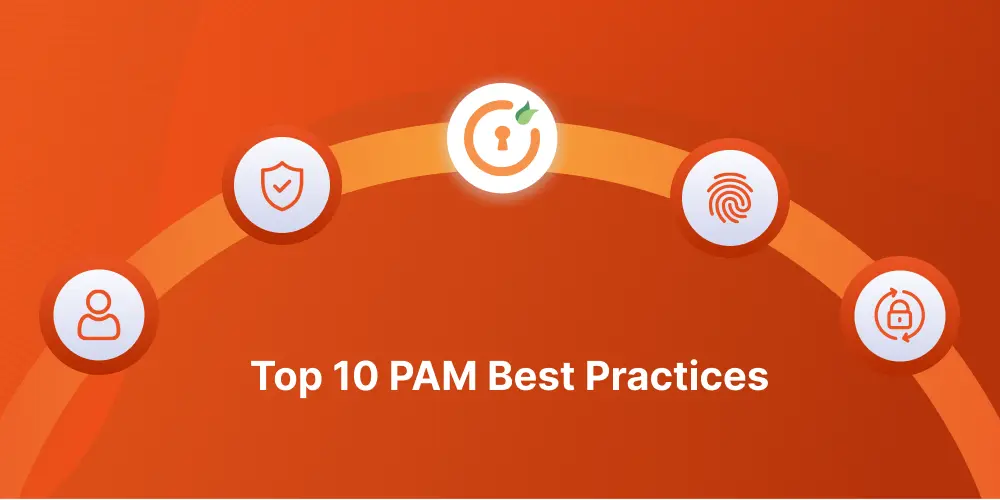More than 80% of data breaches begin with stolen credentials, while MFA is the solution to prevent 99.9% of unauthorized attempts done using the stolen passwords. Your company needs an extra layer of security on top of your traditional username and password, like multi-factor authentication. It helps your business against the costs involved and the reputation damage that happens after hackers try to get into your data.
With most of the organizations working hybrid, location-based access control is no longer applicable, as your workforce is distributed across the globe, and so are the hacking perpetrators. Protecting your employee identities and company data begins with a strategy with multiple layers of authentication. It is essential for preventing millions in losses through financial damage by eroding customer trust and inviting regulatory penalties. A single breach can set your business back irreparably in an already competitive market.
In this blog, you will learn how MFA can provide businesses with security and earn customer trust by keeping their data safe with the help of it. Also, how miniOrange can protect from unauthorized logins.
What is Multi-Factor Authentication?
Multi-factor authentication requires users to prove their identity through two or more separate verification methods before granting access. The system requires users to enter their password and then complete an additional verification step using either a mobile verification code or biometric scan to establish a multi-layered security system that minimizes unauthorized access. The multi-tiered security approach in the miniOrange MFA product enhances protection protocols while simultaneously increasing stakeholder confidence through its successful defense against contemporary cyber threats.
Today’s advanced security systems, like adaptive MFA combine multiple verification layers, including SMS/email codes, authenticator apps, hardware tokens, and biometrics, to create robust protection. This approach builds upon traditional credentials with additional safeguards like time-limited codes, login attempt limits, and adaptive checks through device fingerprinting or behavior analysis.
7 Reasons Your Business Needs MFA
The security shield of multi-factor authentication protects user accounts from 99.9% of potential breaches, as per Microsoft security research. Enabling multi-factor authentication for an additional security layer is a smart move for businesses with mission-critical applications such as healthcare, finance and more.
1. Prevent Costly Data Breaches
Today's passwords do not provide enough protection on their own. Every day cybercriminals use various methods to break or obtain passwords from the dark web marketplace. The security barrier established by MFA protects your system even when hackers obtain authentication credentials. The implementation of MFA by businesses results in 99.9% fewer account breaches than password-based authentication systems. Business MFA represents the ultimate security deal because it costs organizations $4.45 million on average during data breaches (IBM Security).
2. Meet Compliance and Regulatory Standards
The current regulatory requirements for MFA go beyond suggestions because they now mandate its implementation. The authentication standards of GDPR, HIPAA, PCI DSS and SOC 2 require strong authentication systems. Your organization can achieve compliance through MFA deployment and prevent significant financial penalties. The implementation of MFA earns appreciation from your legal team while building customer trust and securing auditor approval of your security posture without typical problems.
3. Secure Remote and Hybrid Workforces
Your workforce accesses company resources through offices located in various parts of the world as well as from home offices and public spaces and co-working facilities. The benefits of flexible work models expose security threats that passwords fail to address. The verification process of MFA operates everywhere, thus protecting your essential systems regardless of whether employees work from headquarters or from distant locations worldwide. Your business maintains operational flexibility as security remains unharmed.
4. Build Customer Trust
Modern customers recognize potential security threats, so they look for businesses that safeguard their information. Providing MFA to your customers shows your dedication to security and develops essential trust between you and your clients. When customers witness additional authentication measures, they understand that data protection is your top priority. Security breaches that hit the headlines weekly create an opportunity for your business to gain customer loyalty through trust, which results in positive reviews and a competitive market position.
5. Defend Against Phishing and Social Engineering
The workforce experiences advanced phishing attacks that demonstrate authentic appearance. Even with their technical skills, some members of the team become victims of such attacks. MFA operates as a protective shield because attackers cannot access accounts even when users unintentionally disclose their credentials since a second authentication factor remains necessary for access. MFA functions as a safeguard that renders the most prevalent business cyberattack method ineffective.
6. Save Costs and Resources
Business security incidents require substantial resources and financial expenses and personnel time. Your IT department dedicates extensive time to reset passwords as well as handle security incidents involving compromised accounts. The implementation of MFA leads to fewer security incidents, which allows your technical staff to dedicate their time to developing innovations instead of emergency response work. The investment returns rapidly because your organization generates reduced technical support requests and diminished security breaches and increased employee productivity.
7. Flexibility for All Business Sizes
MFA solutions work for businesses of all sizes, including small startups and multinational corporations, because they offer adaptable security measures. Cloud-based MFA companies supply multiple authentication choices, which start with basic SMS verification and reach sophisticated biometric verification methods. Your company can implement protection for vital systems at first and then extend it as your organization expands. The decline of MFA implementation costs combined with increased options has made the technology accessible to all organizations regardless of their budget or technical abilities.
Learn more about the advantages and disadvantages of biometric authentication.
Benefits of Business Multi-Factor Authentication
The implementation of multi-factor authentication for business provides transformative security advantages that revolutionize the digital protection capabilities of your business. MFA establishes immediate organizational value through its implementation across your company. The key reasons that an organization should adopt MFA include:
Enhanced Security
MFA provides immediate security enhancement through its requirement of multiple verification methods, which combine passwords with smartphones and fingerprints or security keys. The multi-layered security system protects against 99.9% of automated attacks while defending against credential stuffing, brute-force attacks and password spraying.
Controlling Risk of Identity Theft
MFA protects identities from theft because it requires distinct verification elements that hackers cannot replicate. The verification process confirms user identities, thus protecting both employee identities and customer relationships.
Compliance with Regulations
MFA provides a unified solution that meets regulatory requirements, including GDPR, HIPAA, PCI DSS and NYDFS. The solution simplifies audit processes and documentation, which helps you prevent security violation penalties while strengthening your overall security posture.
Improved User Trust
MFA shows customers through visible means that you actively protect their data. The additional login verification process builds customer trust and loyalty because it differentiates your security practices from competitors who have weaker measures.
Protection Against Phishing Attacks
MFA protects against phishing attacks because they represent the cause of about 90% of data breaches. Attackers who obtain credentials cannot access your systems because they need an additional authentication factor, such as push notifications, verification codes or biometrics, which provides time to enhance user awareness.
miniOrange MFA Simplifies Security for Businesses
The security solutions from miniOrange MFA Solution help businesses achieve easier protection against potential cyber threats. Our product transforms complex security challenges into an integrated protection system that supports businesses at every level. The miniOrange MFA Solution provides enterprise grade authentication capabilities without requiring the extensive complexity of traditional enterprise systems.
What sets us apart? Deployment happens in days, not months, with seamless integration across 500+ applications. From push notifications to biometric logins and hardware tokens, our intuitive platform simplifies security without compromising strength. We back this with 24/7 expert support and flexible pricing that saves small businesses 60% and enterprises 40%.
See how it works in real environments: A regional bank slashed password related helpdesk tickets while maintaining compliance, a healthcare network secured patient data with automated reporting, and a global manufacturer consolidated multiple authentication systems into one cost effective platform. Whether you’re a small team (5 to 100 users), a growing company (100 to 1000 users), or a large enterprise (1000+ users), we adapt to your needs. Talk to our experts today for a tailored solution.
Conclusion
The importance of MFA cannot be understated, as MFA in business operates as an essential security feature because its implementation costs remain minimal, yet security breaches could result in substantial expenses. The MFA solution from miniOrange provides immediate, cost-effective protection that blocks almost all automated attacks while reducing help desk calls and supporting compliance needs without requiring complex or expensive systems.
Modern security requires organizations to understand the fundamental distinction between authentication and authorization. Our solution implements context-based authentication to dynamically adjust security measures based on risk environment conditions, while authorization determines user permissions and authentication verifies user identities. The approach creates lasting trust while safeguarding your important business information through continuous business authentication that maintains market competitiveness.
The free security assessments and expert deployment support from miniOrange help organizations tackle modern, expanding threats effectively to demonstrate that strong, flexible authentication methods are both necessary and intelligent. Take yours today!
FAQs
Why is an MFA mandatory?
The requirement for MFA exists because passwords by themselves do not provide adequate protection. The majority of data breaches occur because attackers obtain access to user credentials. MFA implementation has become mandatory because of regulations such as GDPR, HIPAA and PCI DSS. MFA protects sensitive data and preserves customer trust by reducing breach risk to 99.9% for businesses.
Why use MFA if we have strong passwords?
Strong passwords provide no protection against phishing attacks and keylogging and data breaches. MFA requires attackers to overcome two security barriers through physical tokens or biometric authentication methods. The security measure protects unauthorized access points even when password managers become vulnerable.
Is MFA difficult to implement?
Modern MFA solutions deploy quickly with minimal technical expertise. The majority of cloud systems allow administrators to activate built-in MFA protection through quick activation procedures. The implementation process of MFA has become both affordable and straightforward because of extensive support materials and pre-made templates.
Does MFA slow down workflows?
The current MFA systems provide security improvements that do not create operational delays. Single sign-on reduces repeated authentications, and contextual authentication recognizes trusted devices to minimize prompts. Users can access their accounts quickly through secure methods, which include biometric authentication and the “Remember this device” option that takes only a few seconds.
miniOrange
Author





Leave a Comment